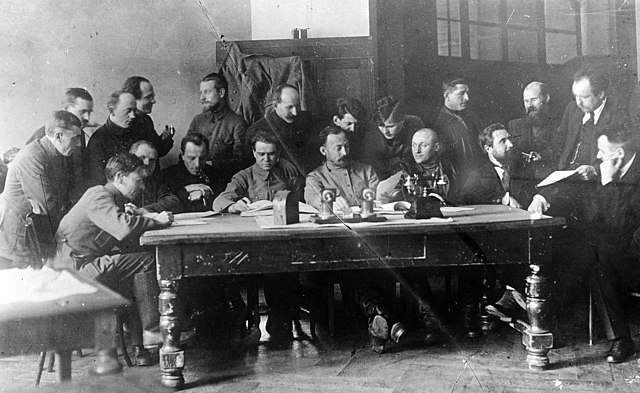The All-Russian Extraordinary Commission, abbreviated as VChK, and commonly known as Cheka, was the first of a succession of Soviet secret-police organizations known for conducting the Red Terror. Established on December 5 1917 by the Sovnarkom, it came under the leadership of Bolshevik revolutionary Felix Dzerzhinsky. By late 1918, hundreds of Cheka committees had sprung up in the Russian SFSR at all levels.
Members of the presidium of VCheKa (left to right) Yakov Peters, Józef Unszlicht, Abram Belenky (standing), Felix Dzerzhinsky, Vyacheslav Menzhinsky, 1921
Smolny, the seat of the Soviet government, 1917
Grigory Petrovsky
Felix Dzerzhinsky in a meeting among other members of the Presidium of the Cheka, 1919
Secret police are police, intelligence, or security agencies that engage in covert operations against a government's political, religious, or social opponents and dissidents. Secret police organizations are characteristic of authoritarian and totalitarian regimes. They protect the political power of a dictator or regime and often operate outside the law to repress dissidents and weaken political opposition, frequently using violence. They may enjoy legal sanction to hold and charge suspects without ever identifying their organization.
A machine used by the East German Ministry for State Security to re-glue envelopes after mail had been opened for examination





